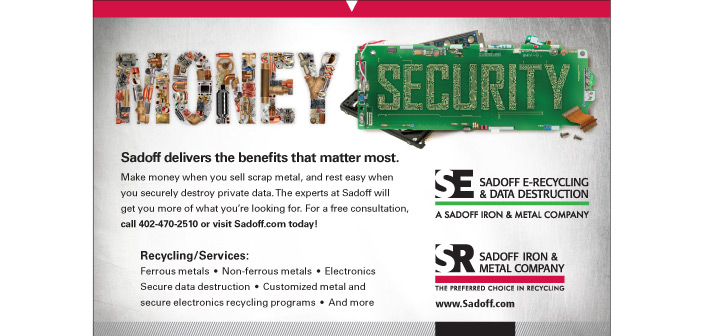The Life of an Aluminum Can
Recyclable materials come from many different sources such as manufacturing and households, as well as end of life or products like automobiles, washing machines, and electronics. In metal recycling, materials breakdown into two main categories: steel, which is magnetic, and non-ferrous metals, which are non-magnetic. These include aluminum, copper, brass, and stainless steel. One of the most recycled items are aluminum cans. Aluminum cans can be recycled indefinitely.
- A recycled aluminum can saves enough energy to run a television for three hours.
- Each household in the United States uses approximately 600 steel cans per year.
- Recycling seven steel cans saves enough energy to power a 60-watt light bulb for 26 hours.
- Americans use 100 million cans per day.
- Americans throw away (dispose, not recycle) enough iron and steel to supply all the nation’s automakers on a continuous basis.
- The 36 billion aluminum cans land-filled last year had a scrap value of 600 million dollars.
A great example of recycling is the life of an aluminum can. This is a simple cycle of an aluminum can’s life:
- A can is opened at a restaurant and consumed.
- The can is then collected and crushed.
- The can is turned in at a recycling collection box or yard.
- The yard then bales the can with other recycled cans and sends them to a smelter for processing into new stock.
- The processed stock is then sent to a manufacturer and formed into new cans.
- The cans are then sent to the beverage manufacturer and filled.
- Finally, they are sent to the restaurant for you to drink from again.
The process of recycling of metal, e-scrap, paper, plastic, etc. all follow a similar process. Sadoff Iron & Metal (sadoff.com) offers scrap metal recycling of non-ferrous metals and ferrous scrap, electronics recycling, and more.
Our multiple locations provide exceptional recycled products and programs for steel mills, foundries, smelters, and many others. If you have any questions on your ferrous, non-ferrous, and electronic scrap needs, let us know.


